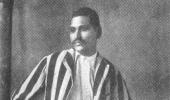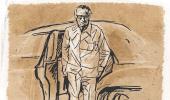Roaring crime gave Venezuela the horrific title of being one of the most violent countries on earth.
Inflation ran into tens of thousands per cent, impoverishing nearly all of the country's 31 million people.'
Yet, says Radha Roy Biswas, she sees hope for the beleaguered nation where she spent her childhood years.
- Part 1: Venezuela: Before the Implosion
- Part 2: When Venezuela's star stopped shining
- Part 3: 'In my grief, I blocked off Venezuela'
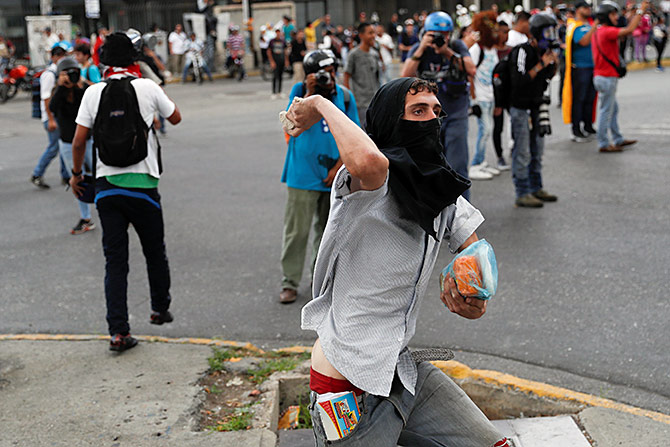
After my father's death, my connection to Venezuela remained more or less severed.
But over the years, Venezuela continued to flicker through my consciousness, mostly through the occasional news item or a visit from one of the Indian families still residing there.
And the news continued to be dismal. Crime escalated, industry contracted, the Bolivar fell, despite the occasional upswing from a rise in oil prices.
In 1999, Hugo Chavez rose to power, on the tide of anger and despair that had engulfed Venezuelans.
Chavez's Bolivarian revolution involved nationalising industries and launching expensive social programmes as petrol prices climbed up again.
Luckily for him, oil prices soared and the populism worked. For a while. But underneath, the malaise spread and deepened.
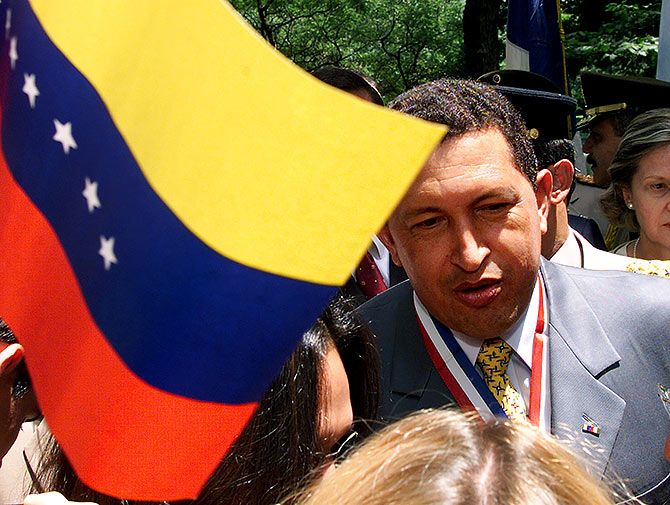
In 2004, when I was living in Boston, a new thread of contact with Venezuela established itself as a few of my old friends and I found each other through Facebook.
Most were living outside Venezuela. Only one of my international Mapanare colony friends, Daniel Vargas, still lives there.
A while back, Daniel posted pictures of our old neighbourhood, Mapanare.
It is now empty, overgrown with brush, with cement bases left behind like footprints where the trailers stood, testimony to the decline that has engulfed the country persistently, tenaciously, under spurts of wealth and growth.
I turn restlessly to Google Earth.
The images confirm the emptiness his posts describe.
I am told people had started moving away in the mid-nineties to the city, but the complete abandonment of the colony speaks of more.
I feel like a few years of my life have been stolen.
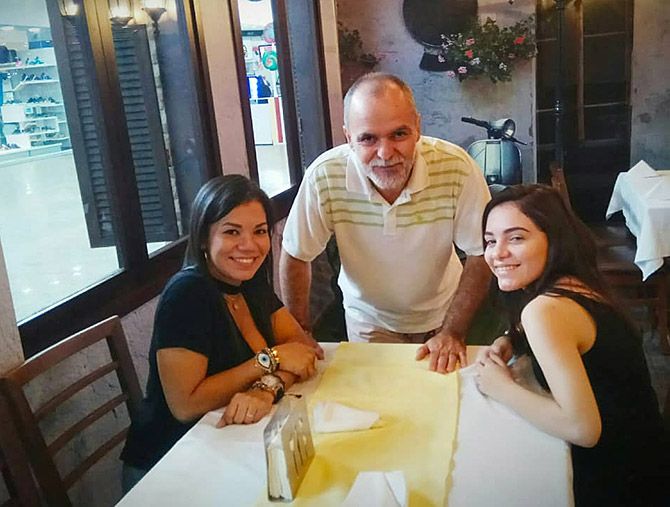
My friend helps me reconcile to this loss. He refers to Mapanare as that 'beloved, secure crucible of our growing up years', but perceives, rightly, that it was a privilege.
It was a cocoon while, outside, many Venezuelans suffered and struggled under years of government neglect.
The glitz of the exotic foreign land that dazzled me when I first went there was but a veneer bought with easy money.
Perhaps the ruins of Mapanare are justified, a reminder of what the rest of Venezuela deserved too and never had.
As children we did not to notice those things, but the ground was already primed to crumble by the time the economy went into free fall.
Years of government negligence, not just the fallout of oil prices, became the resentment that your mother witnessed at the supermarket meat shop” is Daniel's take on my memories.
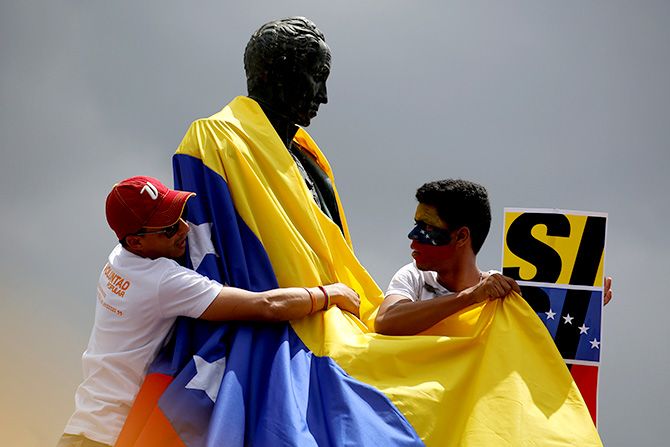
It was this resentment that was later turned into the self-proclaimed people's revolution of Hugo Chavez; a revolution that brought no end to the suffering and decline.
In 2013, following Chavez's death, his strongman successor, Nicolas Maduro, assumed power, continuing his predecessor's proclaimed socialistic policies, pulling Venezuela further and further into the abyss.
From Daniel's posts, I came to know that in SIDOR, the steel plant where our fathers worked, production fell drastically; in 2014, it was operating at a third of its capacity.
Sometime in 2016, production stopped completely in some of its mills.
And the statistics? The statistics became so absurd, they would be laughable if they were not so tragically true.
Roaring crime gave Venezuela the horrific title of being one of the most violent countries on earth.
The country's central bank stopped issuing key economic indicators, so staggeringly dismal were they.
Inflation ran into tens of thousands per cent, impoverishing nearly all of the country's 31 million people.
Venezuela's economy shrank by more than a third between 2013 and 2017. The currency, the bolivar, became virtually worthless, with a can of Coke costing 2.8 million bolivars.
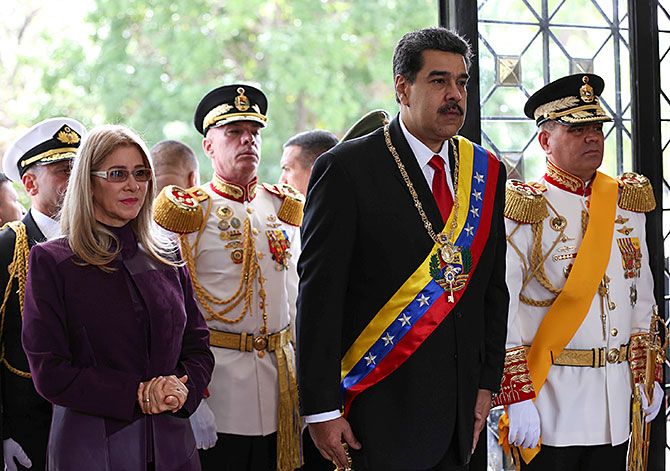
Sometime in 2018, the Maduro government tried to introduce a replacement currency, unsuccessfully.
Even with a new currency, nearly nine out 10 of Venezuelans are still unable to buy essentials.
Drug cartels have moved in from neighbouring countries.
Nearly 4 million Venezuelans have fled the country, including half its doctors.
In a bitter deja vu, the country's business and political leaders have been caught once again, fleeing with the people's money.
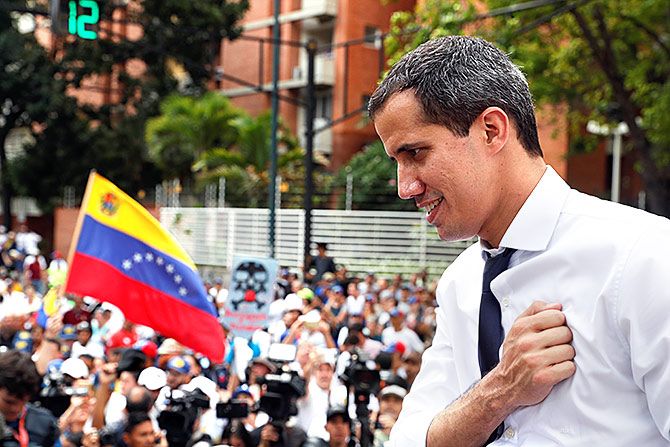
There was a brief spark of hope in December last year, when the young Opposition leader Juan Gaido, part of the coalition that had won the national parliamentary elections in 2015, was declared interim president.
But the Opposition's claims were invalidated, when Maduro, backed roundly by the country's military establishment, refused to acknowledge the legitimacy of the outcome and continued to hold on to his seat in Caracas.
Attempts at an embargo by the US, and acceptance of Gaido's claim to the presidency, were declared to be deliberate regime change tactics and therefore illegal.
Maduro has been keeping a firm grip on power, defying all international pressure with the help of allies, chiefly China, Russia and Cuba.
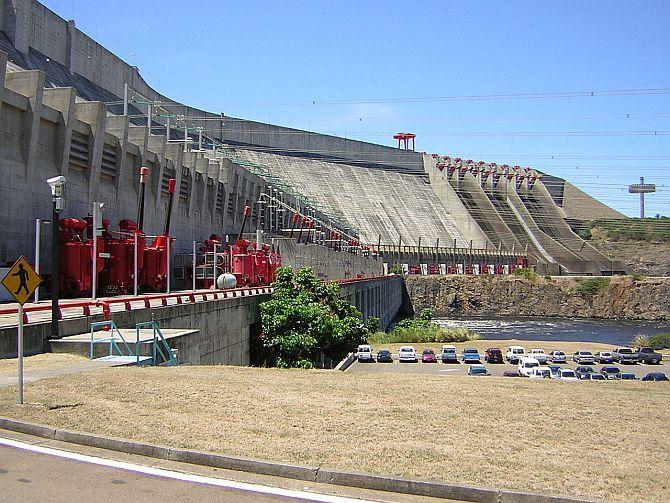
In March 2019, the country's main source of electricity, the Guri hydrolectric power plant -- one of the largest in the world, stopped operating, and the country faced a massive blackout for nearly a week.
Cities, including Caracas, plunged into darkness, and those watching, were treated to a surreal scene of neighbourhoods being intermittently lit by car headlights.
In some twisted poetic logic, petrol was the one commodity still saving the people, albeit in spurts.
Sometimes I wonder how Venezuela went from being the poster child of Latin America's promise, to a cautionary tale, to the star that collapsed.
Exactly how and why this happened is for social scientists to understand but, for me, Venezuela is like a gifted, rich, over-indulged teenager that did not quite know what to do with itself.
It got carried away at its own party while its unscrupulous guardians milked it for its worth and then abandoned it.
When, if ever, will there be a reversal of fortune, is anybody's guess.
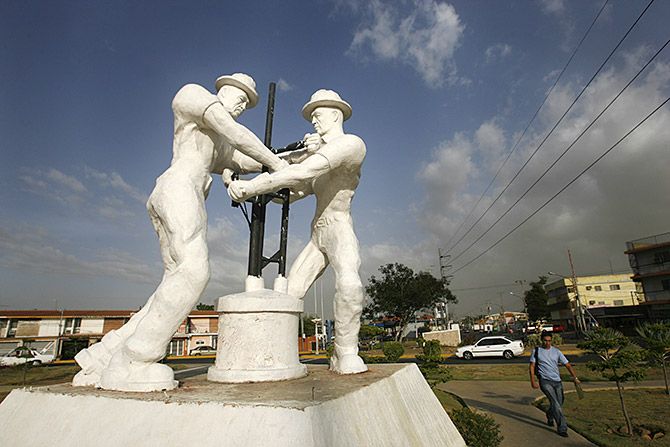
In spite of the setbacks, there seems to be hope burgeoning.
Recently, Daniel posted on Facebook a caption that said, 'Change is around the corner.'
'Let me tell you, I am a pessimist at heart, I have seen all my fears come to be our daily reality', he added.
'But what gives me hope, is that finally one can see people working every day, with coherence, towards a solution and not just waiting for a divine intervention.'
'Even though it is just a few, I believe in those few, and myself....'
The post seemed almost defiant in light of all the news that his other posts carried about the powder keg that is Venezuela today.
But with his message, hope has bubbled up in me as well.
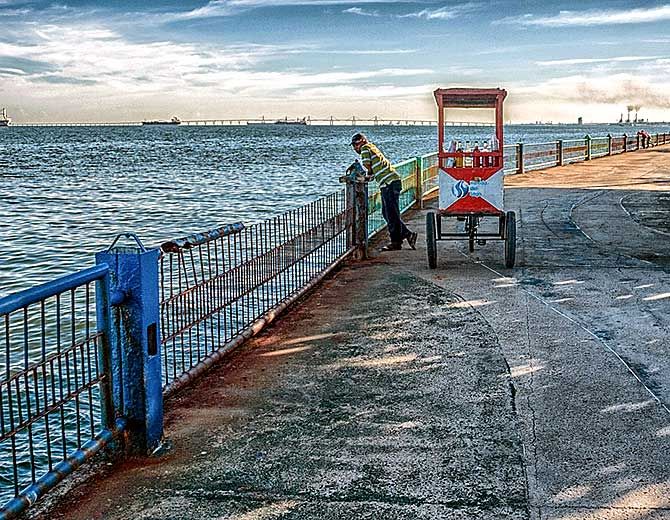
Places from our formative years remain indelibly etched in our minds for all that we associate with them.
They occupy a special corner inside us.
Losing that sense of a place is like losing an old friend and a sense of self; because no matter the time and distance, you never want to lose sight of them entirely.
For me, that's Venezuela.
And so, after all these years, as I sit in Jamshedpur, I try not let it pass me by. Even when it just rides the ribbon at the bottom of the news screen.
Radha Roy Biswas, born in Jamshedpur, spent some cherished growing years in Puerto Ordaz Venezuela. A public policy researcher by training, she returned to Jamshedpur with her husband and daughter after 15 years in the USA. She consults occasionally in her field and devotes some time writing and teaching. She continues to be a keen observer of the developments in Venezuela.
Daniel Vargas, born in Chile, moved to Puerto Ordaz, Venezuela, in 1977 when he was 11 and has lived in the area ever since. A communications professional, he is married to a Venezuelan and has a daughter in medical school in Argentina. Despite being deeply affected personally and professionally by the ongoing crisis, Daniel continues to root for his adopted home.
